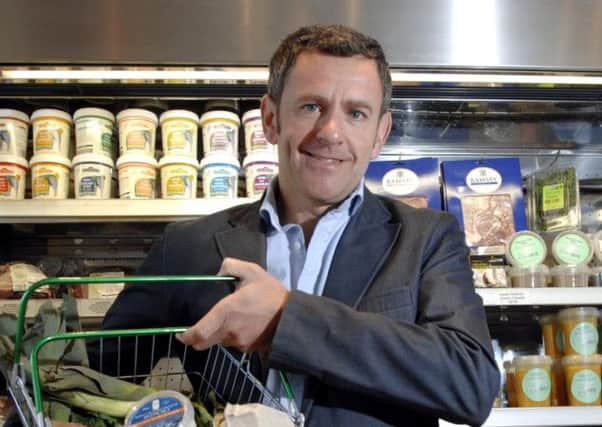Stephen Jardine: Tuning in to TV’s love of good food


Last Wednesday’s episode topped the channel’s ratings that night, drawing in 5.53 million viewers. Not bad for a TV show about amateur cooks that has been running since 1990.
But if food and drink as competition has been the trend for some time, the new focus is making it an added ingredient.
Advertisement
Hide AdAdvertisement
Hide AdRenaissance art, gardening and social history are three of the recent format developments for food on television, and all have worked spectacularly well.
Giorgio Locatelli’s Unpacked series with art historian Andrew Graham Dixon helped start the trend. In it, the pair travel around Italy celebrating exquisite food and art. Locatelli asks the daft questions about art the rest of us are thinking, while Graham Dixon has the job of working out how you tell your parmesan from your pecorino. The result is a joyful concoction of delicious food and beautiful paintings and buildings.
Then came Kew on a Plate where Michelin two-starred chef Raymond Blanc spent a year transforming part of the world famous botanical gardens into an historic fruit and veg patch and then cooked with the end products.
The food looks exquisite, but the real star is the produce. Who knew there was a potato called International Kidney?
But the TV food gem of the year for me so far has been the perfectly titled Back in Time for Dinner on BBC2.
This six-part series follows one British family on a time-travelling adventure as they discover how a post-war food and drink revolution has transformed the way we live, with journalist Giles Coren acting as their guide. What makes Back In Time For Dinner so compelling is that the story is told not by TV professionals but as consumed by the lovely but ordinary Robshaw family.
When their children wonder how Vesta chicken curry was ever a thing, we are left pondering exactly the same question.
And when wife Rochelle bemoans her miserable lot, stuck in the kitchen producing endless meals with no help from gadgets or her family, I really felt for the generations of women who felt trapped by food.
Advertisement
Hide AdAdvertisement
Hide AdThe basis for the meals cooked over the series is the National Food Survey, which recorded household food consumption from 1940 to 2000. The transformation has been remarkable, not just in what we eat but also in how much we eat.
The series quoted a Fifties housewife as writing in her food diary: “A hungry man is an angry man.”
Jeremy Clarkson is proof of that to this day, and it was the line that stayed with me long after the credits rolled.
FOLLOW US
SCOTSMAN TABLET AND MOBILE APPS